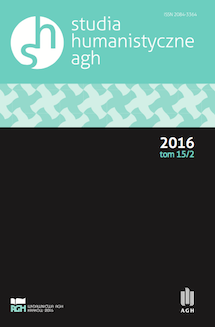DYSTOPIE GEORGE’A A. ROMERO: WIZJA DYSTOPII W ŚWIECIE JEGO TRYLOGII ZOMBIE
GEORGE A. ROMERO’S DYSTOPIAS: THE REPRESENTATION OF DYSTOPIA IN THE UNIVERSE OF HIS ZOMBIE TRILOGY
Author(s): Michał ZgorzałekSubject(s): Ethics / Practical Philosophy, Aesthetics, Film / Cinema / Cinematography, Sociology of Art
Published by: Wydawnictwa AGH
Keywords: dystopia; social critique; human holocaust; morality;
Summary/Abstract: The present paper discusses dystopia in the genre of horror on the basis of George A. Romero’s zombie films. Dystopia seems to be inextricably linked with the vision of the world in which the very structure of the society has been destroyed along with moral codes and the only remaining thing is the will to survive. In the Living Dead Trilogy Romero skilfully used the zombie apocalypse motif to portray both vices as virtues characteristic to American way of life. Moreover, in his motion pictures, he envisages what may be the implications of possible dystopias arising from the ashes of destroyed human civilisation and, thus, gives the audiences, and the critics, an incredible resource for interpretation and further analysis. The methodology involves the paradigmatic analysis of the plots in order to show how the motif of zombie apocalypse is used to explore the notion of dystopia. Moreover, the mentioned analysis will also cover explicit, implicit and symptomatic meaning created by the analysed films.
Journal: Studia Humanistyczne AGH
- Issue Year: 15/2016
- Issue No: 2
- Page Range: 43-49
- Page Count: 7
- Language: English

